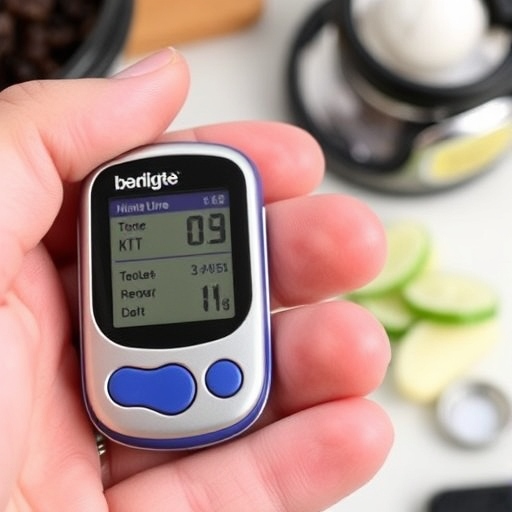Some days stay with you forever. For me, one of those days was when I learned just how crucial blood sugar tracking could be—not just for managing my health, but for transforming my life.
I didn’t grow up thinking much about blood sugar. I wasn’t diabetic, and like many people, I assumed it was something only certain individuals had to worry about. That all changed after a single conversation with my doctor.
Here’s how that day unfolded and why it changed my perspective on health forever.
The Wake-Up Call
It started with a routine checkup. I had been feeling tired more often, experiencing mid-afternoon crashes, and struggling to concentrate. My doctor suggested running some tests, including a glucose test.
When the results came back, they were borderline concerning. My fasting blood sugar levels were higher than normal, placing me in the prediabetes range. My doctor’s advice was simple but impactful:
« Start tracking your blood sugar. It will help you understand what’s happening inside your body. »
At first, I was skeptical. Wasn’t this going to be complicated? Would it really make a difference? But I decided to give it a try.
The First Day of Tracking
I bought a simple blood sugar monitor and started tracking my levels first thing in the morning, before meals, and two hours after eating. It felt strange at first, pricking my finger and noting down the numbers.
That very first day, I had a big “aha” moment. After eating what I thought was a healthy lunch—a bowl of pasta with a side of fruit—my blood sugar spiked significantly. I hadn’t realized that certain foods I considered healthy could cause such dramatic fluctuations.
What Blood Sugar Tracking Taught Me
Over the next few weeks, I continued tracking my levels and began noticing patterns:
- Not All Carbs Are Equal
Foods like white bread, rice, and pasta caused spikes, while whole grains and fiber-rich options kept my levels steady. - Timing Matters
Skipping breakfast led to higher blood sugar spikes later in the day. Eating small, balanced meals at regular intervals made a huge difference. - Exercise Is a Game-Changer
A short walk after meals helped lower my blood sugar significantly. I started incorporating movement into my routine every day. - Stress Plays a Role
On particularly stressful days, my blood sugar was harder to control, even if I ate well. This made me realize the importance of managing my stress levels.
How Tracking Changed My Health
After just a few weeks of consistent tracking, I began making informed decisions:
- I swapped sugary snacks for nuts and seeds.
- I added more vegetables and protein to my meals.
- I made walking after dinner a nightly habit.
These small adjustments had a big impact. My energy levels improved, the mid-afternoon crashes stopped, and at my next doctor’s appointment, my fasting blood sugar was back in the normal range.
The Emotional Side of Tracking
At first, tracking my blood sugar felt like a chore. But as I saw the numbers improve and felt the changes in my body, it became empowering.
Instead of feeling like my health was out of my control, I began to see blood sugar tracking as a tool that helped me understand my body. Each reading was a clue, guiding me toward better habits and a healthier future.
Why Blood Sugar Tracking Matters for Everyone
Whether or not you’ve been diagnosed with diabetes or prediabetes, blood sugar tracking can provide valuable insights into how your body responds to food, exercise, and stress.
Here’s why I believe it’s worth trying:
- Awareness: You can spot patterns and make adjustments before small issues become big problems.
- Prevention: Understanding your blood sugar levels can help you avoid conditions like Type 2 diabetes.
- Empowerment: It puts the power of your health in your hands, helping you make informed decisions.
Final Thoughts
The day I discovered the importance of blood sugar tracking was the start of a journey that changed my life. It taught me that health isn’t about perfection; it’s about paying attention to your body and making small, meaningful changes.
If you’re hesitant to start tracking, I encourage you to give it a try. It might just be the key to unlocking a healthier, more empowered version of yourself.
Have you tried tracking your blood sugar? Share your experiences or tips in the comments below, and explore more resources at BloodSugarHealthy.com.





